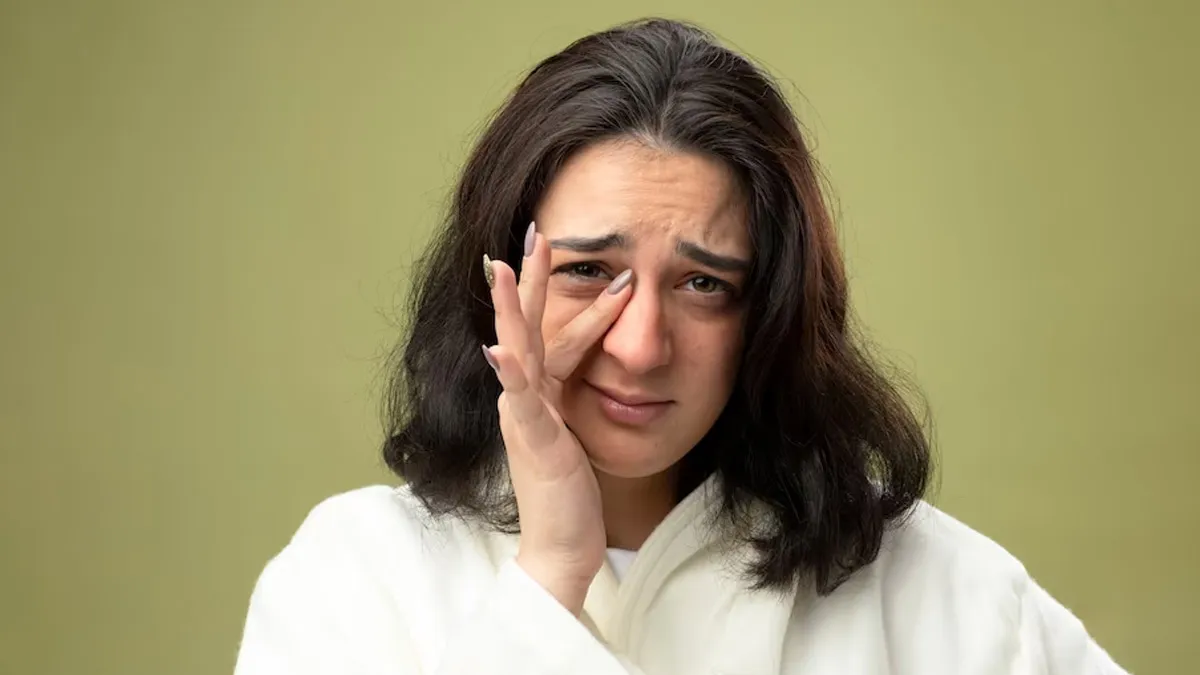
In today's world, sleep takes a back seat to work, social activities, and screen time. However, skimping on sleep can lead to a range of health concerns, including puffy, swollen eyes. If you have ever woken up after a restless night with tired, swollen eyes, you are not alone. But why does lack of sleep cause eye swelling, and how can you fix it?
Table of Content:-
In an exclusive interaction with the editorial team of Onlymyhealth, Dr Shrey Kumar Srivastav, Senior Consultant and General Physician, Sharda Hospital - Noida, takes a closer look at the science behind sleep deprivation and its effects on your eyes. Here is everything he shared with us.
Why Does Lack of Sleep Cause Eye Swelling?
A few causes of swollen eyes due to sleep deprivation include:
1. Fluid Retention
When you do not get enough sleep, the body fails to regulate fluid balance appropriately. This in turn leads to excess fluid building up under the eyes, causing puffiness and swelling.
2. Poor Circulation
If you didn't know already, sleep deprivation affects blood circulation, causing stagnation and increased pressure in the delicate blood vessels around the eyes—which can cause swelling and dark circles.

Also Read: Are There Any Permanent Solutions For Dark Circles? Read On
3. Increased Cortisol Levels
Lack of sleep triggers the release of cortisol or also known as the stress hormone. Elevated cortisol levels break down collagen, weakening the skin around the eyes and making swelling more noticeable.
4. Inflammation
Sleep is necessary for cellular repair and to reduce inflammation. However, poor sleep can cause an inflammatory response, leading to redness, irritation, and puffiness in the eyes.
5. Dehydration
Poor sleep can affect the hydration level of the body and dehydration makes the skin look dry and dull, or puffiness is accentuated, which gives the eyes a swollen appearance.
How to Reduce Eye Swelling from Lack of Sleep
A few tips to reduce eye swelling from lack of sleep include:
1. Get Quality Sleep
Aim for seven to nine hours of continuous sleep per night, which allows for body recovery and fluid rebalancing.
2. Hydration
Drinking ample amounts of water helps to flush out toxins and reduce water retention which contributes to puffiness. Hence, keep yourself well hydrated.

3. Cold Compress
By applying a cool washcloth, chilled cucumber slices, or cold tea bags, it constricts the blood vessels and reduces swelling.
Also Read: Are There Any Permanent Solutions For Dark Circles? Read On
4. Rest with an Elevated Head
Sleeping with your head slightly elevated helps prevent fluid accumulation around the eyes.
5. Eliminate Salt Intake
Too much sodium causes excess water retention, which worsens puffiness in the eyes. Be sure to take in a well-balanced diet that has less processed foods.
When to See a Doctor
If eye swelling persists despite lifestyle changes or is accompanied by pain, itching, or vision disturbances, consult a healthcare professional. Persistent eye puffiness may indicate underlying medical conditions such as allergies, sinus issues, or thyroid problems.
Bottomline
Lack of sleep is a common culprit behind swollen, puffy eyes, but simple lifestyle changes can help reduce the effects. Prioritising good sleep hygiene, staying hydrated, and maintaining a healthy diet can all contribute to brighter, healthier-looking eyes. So, the next time you’re tempted to sacrifice sleep, just don't!
Also watch this video
How we keep this article up to date:
We work with experts and keep a close eye on the latest in health and wellness. Whenever there is a new research or helpful information, we update our articles with accurate and useful advice.
Current Version